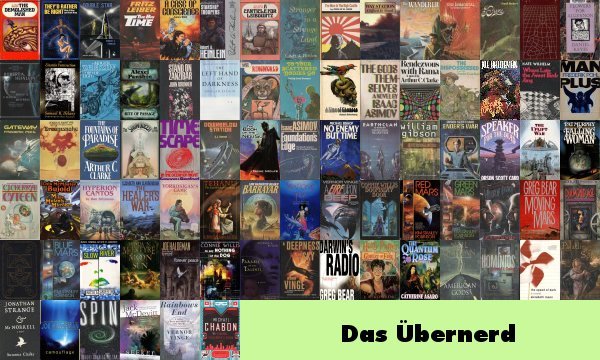 The Yiddish Policemen's Union
The Yiddish Policemen's Unionby Michael Chabon
2008 Nebula Winner for Best Novel
2008 Hugo Winner for Best Novel
Once again here I am at the end of the line. It's the most recent winner of the Nebula, the winner of the Hugo just a month ago, and this year's Locus award. It might be the most celebrated science fiction novel in years. I've disagreed with popular opinion often enough before (sometimes vehemently) but when it comes to The Yiddish Policemen's Union I don't. Still I'm not as enthusiastic about it as some people mainly due to the fact that the plot didn't grab me.
When the state of Israel was founded after World War II it lasted just weeks before being overrun by its Islamic neighbors. As a temporary alternative the United States offered a sixty year lease of a rough patch of land in the Alaskan panhandle.
Toward the end 2008 that lease is coming due and the United States has no intention of renewing it. The Jews that moved there are being scattered across the world again. In the midst of this a homicide detective at the lowest point in his life encounters a murdered chess player in the same flop house he has been living in. It is an event that sets him on a path of finding a conspiracy and redemption.
Chabon melds noir, alternate history, and theological fantasy (my own term for fantasy novels with a foot in real world theology) wonderfully. Despite the claims of some people along the lines of "It's not science fiction or fanasy!" you could not seperate these elements from the novel. This is accomplished by using the traditional detective story as the frame occasionally hooking in elements from the other genres.
My problem is that Chabon is fairly leasurely about exploring the plot he established. The majority of the first half of the novel is taken up with establishing the characters and letting them sink to personal low points. It isn't until the half way point in the novel before things start moving. In addition a lot of the story is predictable; Chabon manages to throw a few twists in but I spent a lot of time waiting for the characters to realize something I worked out chapters before. The central mystery just wasn't very compelling to me as a result.
Fortunately there are many other aspects to the book. The characters are not simple to pin down as they try to change as the world does. Most of them are seeking redemption in one way or the other, searching for a messiah that might never come. How they develop and change in their search for that redemption is the real central conflict to the novel rather than the political change over and murder investigation.
It's tempting to describe the secondary characters are very distinctive; I can honestly say I have never encountered a rabbi mafia don in fiction before. The novel is packed with this kind of interesting character and watchign them play off each other is what makes The Yiddish Policemen's Union worth reading.
The Yiddish Policemen's Union is a very Jewish novel and I think that might hamper it a bit. While Chabon explains in narration the aspects of the culture important to the plot there are a lot of details that I only picked up on because I lived in an area with a significant Jewish population for a few decades. The conflicts between different factions have real world parallels for example, and Chabon doesn't explain many details.
I need to mention Chabon's prose which is... I guess unusual is the best way to put it. It has a very unique voice that I'm not convinced really works. Besides using the present tense which as I've mentioned tends to push me out of the story it tends to meander, wander, add excessive details, lengthy lists seperated by commas. I think the positives of the stylish prose outweigh the negatives but a reader will remember it.
The Yiddish Policemen's Union is an interesting book and looking at it I don't think it was as effective for me as it could have been. I enjoyed the facinating characters but the prose left me conflicted and the plot didn't thrill me. I liked it but I just wouldn't call it one of the greatest books I've ever read. This is a situation where I think that your milage may vary wildly so I do recommend checking out the novel.
